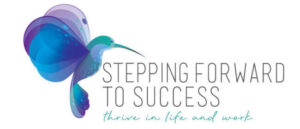Learning is an amazing thing. It can be achieved in so many different ways.
Books, seminars, reflection, lectures, conferences, and assessments all help you to increase your skills and knowledge as an ECE educator.
These formats are all great in their own right.
But, there is one learning opportunity that can be as powerful as all of those other methods combined. And that is Educative Mentoring.
So, why is it so powerful? Well, educative mentoring is like a rising tide. It lifts everyone at the same time, giving multiple opportunities for learning and development that achieve exciting learning outcomes for children and the Centre as a whole.
Let’s explore the role educative mentoring can play in your teacher certification, but also in your career as a whole.
Understanding Educative Mentoring

Educative mentoring goes beyond the traditional guidance of a mentor/mentee relationship. It involves a collaborative relationship between a provisional teacher seeking certification and other experienced educators. Those educators can be your assigned mentor, colleagues, or other connections within the educational environment.
The educative partnership aims not only to support you while you are undertaking your provisional teaching certification, but also to enhance your professional development and improve the quality of education provided to the children at your Centre.
The cool thing about this learning partnership is that it extends beyond your own learning. It views teachers as learners and the Centre as a place for inquiry. By working collaboratively with other educators to build knowledge about teaching together, everyone has the opportunity to learn and develop.
What Is Involved In Educative Mentoring?
In ECE, educative mentoring is particularly helpful for aspiring educators seeking certification or professional development. It serves as a foundation for building effective teaching practices, supporting your growth as an educator, and ultimately benefiting the children under your care by providing a high-quality learning environment.
Complementary to professional learning, educative mentoring helps you to develop alternative beliefs and viewpoints through inquiry and collaborative discussion. Perfectly suited to upskill a novice teacher, this mentoring environment puts you in a great space to learn.
But, it is not just for provisional teachers. Educative mentoring is something that you can benefit from your entire career, potentially even from both sides of the relationship. When you follow the educative mentoring practices, all teachers become learners and collaborate via reflection and critical thinking to enhance teaching practices at your Centre.
This mentoring approach goes beyond simple guidance or advice. It emphasises a reciprocal learning process where both the mentor and mentee engage in meaningful discussions, reflective dialogues, and shared experiences.
Benefits Of Educative Mentoring
Collaborative Learning
Educative mentoring involves a collaborative and reciprocal learning process where both the mentor and mentee exchange knowledge, experiences, and insights. The mutual exchange creates a culture of shared learning and continuous improvement.
This feeling can permeate throughout your entire Centre, encouraging everyone to embrace the practice and create even better learning outcomes for the children.
Support and Guidance
In a traditional mentoring relationship, the mentor provides support, guidance and expertise to the mentee. But, who helps the mentor to develop? How can they continue to grow as educators to provide advice and support that is still valuable to those coming up the ranks behind them?
The answer is educative mentoring. In this process, mentors still provide guidance, advice and encouragement. They still offer support in navigating challenges, setting goals and making informed decisions in relation to teaching practices.
But, it goes beyond that too. In turn, the Mentee can spark alternative viewpoints and enlightening inquiries that the Mentor can benefit from also. By embracing co-planning, team teaching and critical thinking, the Mentor can continue their journey of learning and development with the support of the Mentee.
Reflective Practice
Educative mentoring encourages reflective thinking and self-assessment. Both mentors and mentees are prompted to critically analyse their teaching approaches, interactions with the children, and the impact of their practices on learning outcomes.
Again, this encourages everyone to strive for continuous improvement in their teaching practices, attitude, and mental state.
Professional Development
The influence of educative mentoring extends far beyond the provisional teacher certification process. It helps to cultivate a culture of collaboration, continuous learning, and professional growth within early childhood education communities. As educators evolve and refine their practices, the quality of education provided to children consistently improves.
The habits you create during your certification period can help you to evolve your teaching practices throughout your career. At this point in time, you are focused on constant professional growth. But, that mentality should not end when you receive your certification.
It is important that you continue to access resources, workshops, observations, feedback and collaboration throughout your career to continue the enhancement of your teaching skills and to keep on top of updates and advancements in the field of education.
Learning Outcomes
Possibly the most important aspect, educative mentoring can have a positive impact on the educational experiences of the children at your Centre. When educators are equipped with refined skills and strategies, the children benefit from a more enriching and nurturing learning environment that supports their holistic development.
Embracing Educative Mentoring
For educative mentoring to work, you need to find the correct mentor/mentee relationship. The first place to look is at your Centre. Could you engage in this process with your assigned mentor or another senior educator?
If you are struggling to find someone at your Centre, then the next best thing is to work with an experienced ECE Coach and Mentor like myself. With many years of experience in the ECE sector, I have had the pleasure of supporting plenty of teachers through this process and would welcome the opportunity to support you also.
Simply reach out to me now to see if we’d be a good fit to work together.
I have a couple of resources available to make the process of working through your inquiries smoother, “A Guide to Implementing Teaching Inquiry” and “The Roadmap”. Information is available here. For more about the inquiry cycle, and this provides questions to provoke reflective thinking: https://steppingforwardtosuccess.co.nz/everything-you-need-know-about-the-inquiry-cycle/
The Roadmap can also give you access to other teachers at the same stage as you via a private Facebook group to connect and ask questions. Find out more about the Roadmap here. Check it out here: https://steppingforwardtosuccess.co.nz/roadmap-navigating-ece-provisional-teaching/
Click here to read more about the Roadmap or click here to purchase the Roadmap to Certification e-book for Provisional Certified Teachers. Alternatively, if you are wanting to learn more about my packages, reach out today.
Useful links:
My Website

